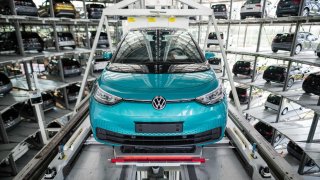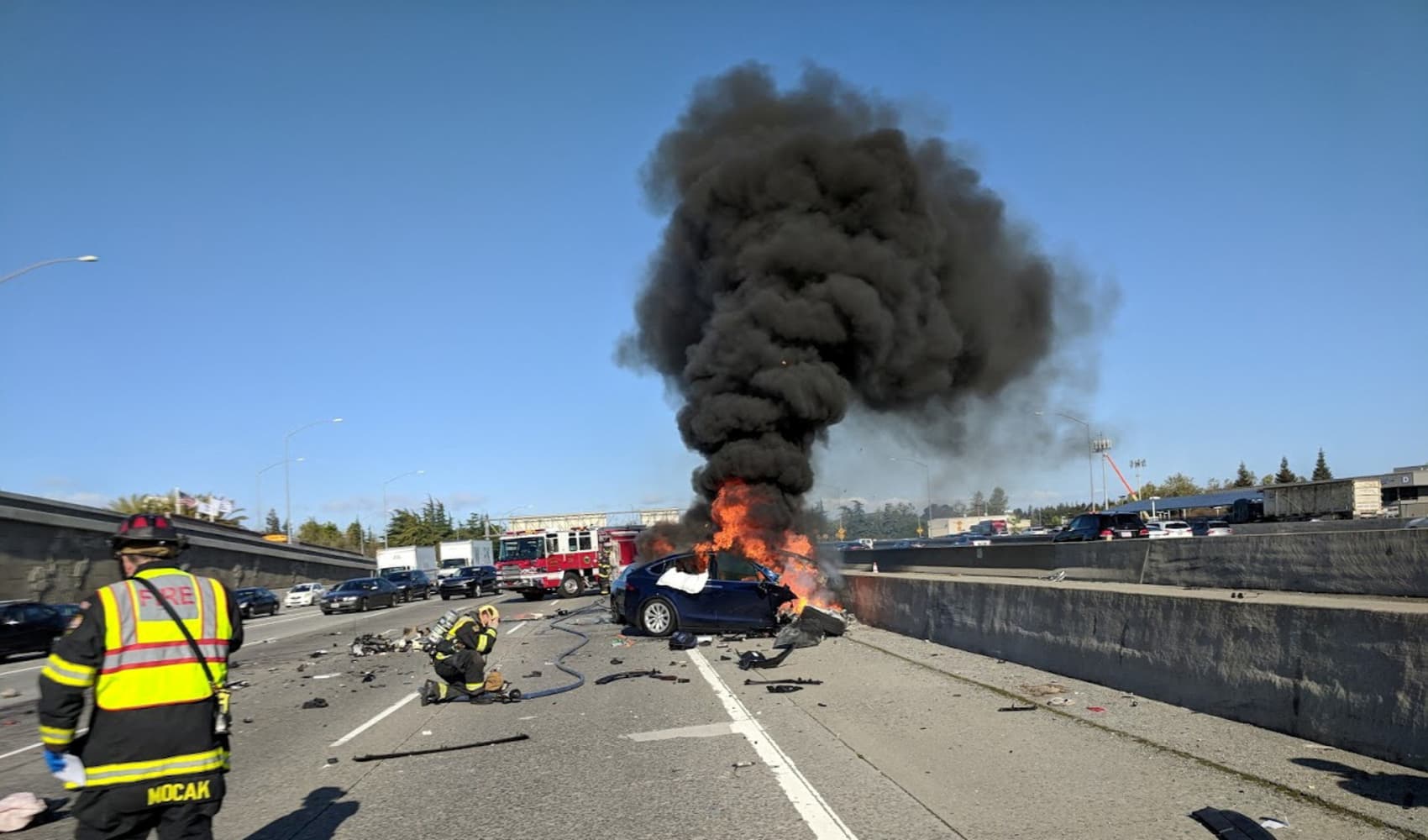
- Speaking to CNBC's "Squawk Box Europe" at the World Economic Forum in Davos, Switzerland, on Tuesday, Herbert Diess said alleviating supply chain issues would likely help create some momentum for the German auto giant over the coming months.
- "Markets are always about the future," Diess said when asked why investors valued Tesla at such a premium to other traditional carmakers.
- "We are still aiming at keeping up and probably overtaking by 2025 when it comes to sales," Diess said.
The chief executive of Volkswagen believes Europe's biggest carmaker can overtake Tesla to become the world's largest seller of electric vehicles by 2025.
Speaking to CNBC's "Squawk Box Europe" at the World Economic Forum in Davos, Switzerland, on Tuesday, Herbert Diess said alleviating supply chain issues would likely help create some momentum for the German auto giant over the coming months.
Get Connecticut local news, weather forecasts and entertainment stories to your inbox. Sign up for NBC Connecticut newsletters.
"Markets are always about the future," Diess said when asked why investors valued Tesla at such a premium to other traditional carmakers, such as Volkswagen.
"Tesla currently is in the lead when it comes to EVs, probably also it is the most digital car company already and they have some advantages," he continued. "We are still aiming at keeping up and probably overtaking by 2025 when it comes to sales."
Diess said Tesla has been able to demonstrate good results and high returns with a credible business model. However, he reaffirmed his belief that Volkswagen could soon close the gap when it comes to EV sales.
Money Report
"I think for Tesla, also, ramping up now will probably be a bit more challenging. They are opening up new plants and we are trying to keep up speed. We think in the second half of the year, we are going to create some momentum," Diess said.
Volkswagen's Frankfurt-listed shares traded around 0.9% lower on Tuesday morning, roughly in line with losses in the autos sector on the pan-European Stoxx 600.
Supply chain crisis to alleviate
More than two years into the coronavirus pandemic, the auto industry continues to grapple with the challenge of obtaining crucial parts and building enough vehicles to meet demand.
Shortages of critical supplies, particularly when it comes to battery production, are expected to be an ongoing constraint for the growth of electric vehicle sales in the years ahead.
Nonetheless, Diess said there are some positive signs on the horizon. He expects to see some relief from the semiconductor supply market from the middle of the year.
"I would say that we would see an alleviation of this situation towards mid-year and second half we should be in better shape — if the situation is not getting any worse, which I don't think so," Diess said.
When asked whether this means he expects the semiconductor crisis could end in the second half of the year, Diess replied: "I wouldn't say end but we see a much-improved situation. I think supply chains are getting in order again."
Follow CNBC International on Twitter and Facebook.






